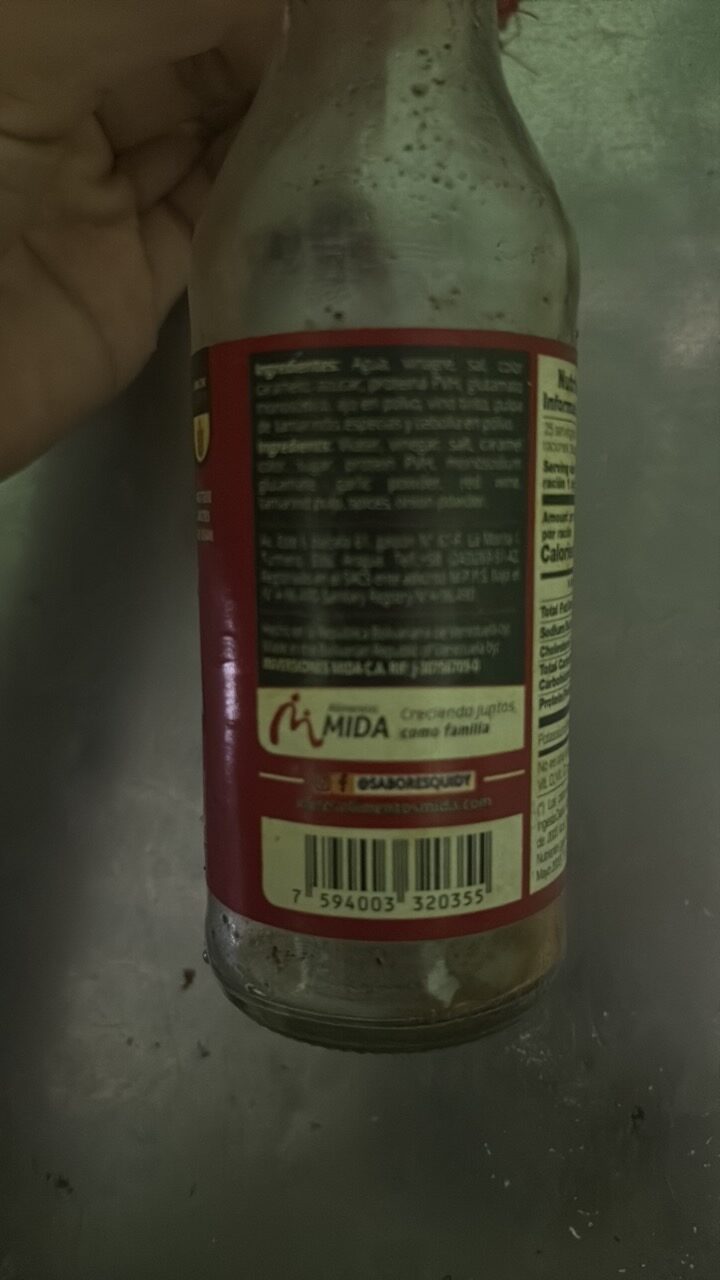
Barcode: 7594003320355
MIDA
HALAL
📝 Reason: The product ‘MIDA’ has been analyzed for Halal compliance based on its ingredients. Most ingredients are plant-based or minerals, which are universally considered Halal. However, ‘colorante’ and ‘ac’ lack specific information regarding their sources, making them Doubtful. There are no Haram ingredients or E-codes present in the product. Therefore, the product is classified as Halal with some Doubtful ingredients that require further clarification.
🏷️ Category: Sauce
📄 Certificates: Vegetarisch, Vegan
Ingredients:
Details
Is MIDA Halal? Exploring Its Ingredients and Safety
The product MIDA has stirred conversations around its Halal status due to its unique combination of ingredients. When assessing whether MIDA is Halal, we need to delve into its components to ensure that they comply with Islamic dietary laws.
MIDA Sauce Ingredients Breakdown
MIDA contains the following ingredients: agua (water), vinagre (vinegar), pimiento (pepper), sal (salt), cebolla (onion), azucar (sugar), especias (spices), colorante (colorant), ac (an unspecified acid), and sodio (sodium). Let’s explore each ingredient further and their Halal status.
Ingredient Analysis
- Agua (Water): Water is universally regarded as Halal, and it is the primary ingredient in MIDA.
- Vinagre (Vinegar): Typically produced by fermenting Halal substances, vinegar is Halal as it poses no issues under Islamic dietary laws.
- Pimiento (Pepper): A plant-derived product, pepper is safe and Halal.
- Sal (Salt): Being a mineral, salt meets Halal requirements without any concerns.
- Cebolla (Onion): Another plant-based ingredient, onion is completely Halal.
- Azucar (Sugar): Derived from plants, sugar is also Halal and poses no concerns for consumers.
- Especias (Spices): Spices are primarily plant products and are considered Halal.
- Colorante (Colorant): This ingredient is where uncertainty arises. Colorants can be derived from either Halal or Haram sources, hence it is classified as Doubtful without specific sourcing information.
- Ac (Acid): Similar to the colorant, ‘ac’ is unspecified, creating doubt about its Halal status.
- Sodio (Sodium): Being a mineral, sodium does not raise any concerns and is Halal compliant.
Halal Certification and Considerations
The comprehensive analysis of MIDA reveals that the majority of its ingredients are either plant-based or minerals, categorically recognized as Halal. However, the presence of ‘colorante’ and ‘ac’ necessitates caution since their sources have not been explicitly identified. Although there are no definitive Haram ingredients or E-codes that disqualify MIDA from being Halal, the ambiguity around these two components makes MIDA’s Halal status less clear-cut.
Despite these two doubtful ingredients, MIDA maintains its Halal classification primarily due to the assurance that no Haram components were identified. Information from Islamic dietary laws indicates that products with clear Halal ingredients but uncertain additives are often regarded with an acceptance of caution. As consumers, it is essential to remain informed and seek further clarification when in doubt. This scenario underlines the importance of transparency in food labeling.
Conclusion
In conclusion, MIDA qualifies as Halal, with the caveat that some of its ingredients require more diligence for verification. For those following rigorous dietary guidelines, we recommend researching the specific sources of the ‘colorante’ and ‘ac’ before making a decision. MIDA is branded under the Sauce category and also comes with Vegetarian and Vegan certifications, reinforcing its broader appeal among health-conscious consumers.
If you are looking for a sauce that adds flavor while adhering to dietary laws, MIDA may be a suitable choice, but not without due diligence regarding its ingredient sources.
